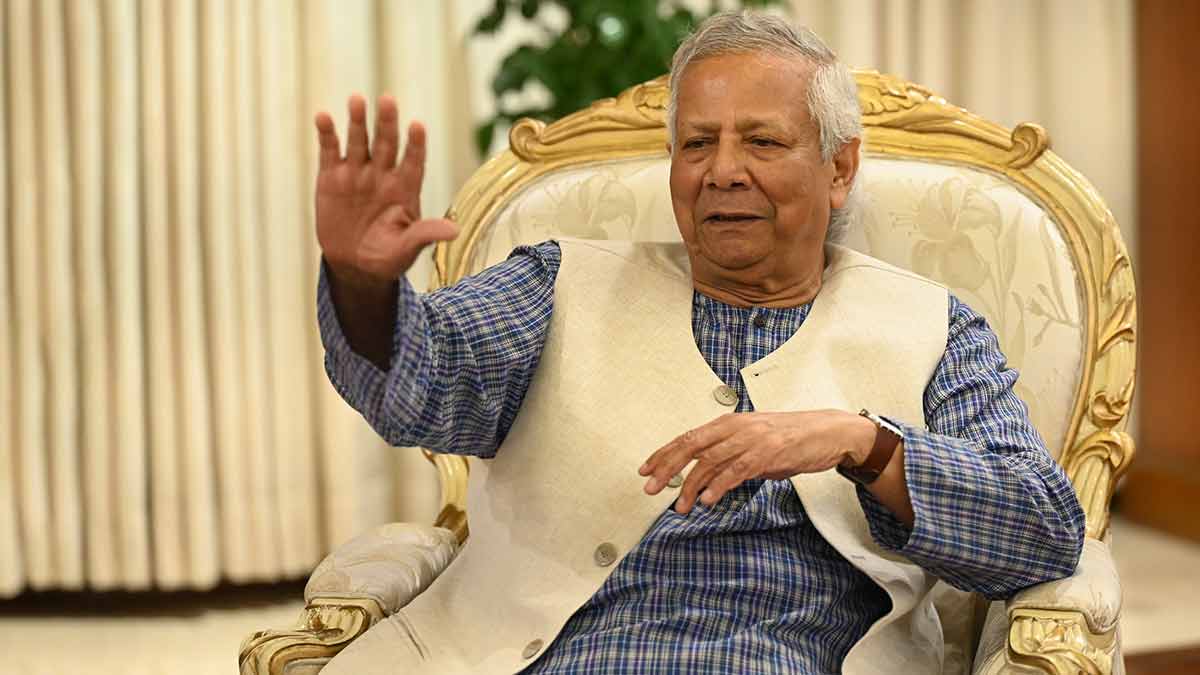Bangladesh's Mohammed Yunus 'moving towards conflict' as he takes BNP heads on with big statement in Tokyo
 Muhammad Yunus | Salil Bera
Muhammad Yunus | Salil Bera
The political unrest in Bangladesh is escalating after chief adviser Mohammed Yunus took a covert jibe at the BNP during his visit to Japan, stating that not all political parties but only one is insisting on holding national elections by December. His statement comes as BNP, a prominent political party, has been at loggerheads with Yunus demanding elections in December.
Attending a meeting in Tokyo, Yunus said: 'If we want to leave the country in the same state, the institutions in the same state, then we can talk about elections in December. But if we need good reforms, then we have to wait another six months. Some people are saying to leave the reforms and finish the elections. Not all political parties, only one party is saying this."
His statement is viewed by many as an open war against the BNP, which has been rallying out against the 84-year-old Nobel Prize winner accusing him of theatrics and staging a resignation attempt when the party urged him to hold elections in December. The BNP has also been holding political rallies in Bangladesh against Yunus for undertaking big decisions.
Yunus's remarks were not well received by the BNP, which accused him of stating falsehood. "The reality is that not only one party but most political parties including BNP, various forces of the state, civil society and the people want early elections," BNP Joint Secretary General Syed Emran Saleh Prince said.
Khaleda Zia, the leader of BNP, too issued a statement soon after but didn't mention Yunus. At an event held to mark the 44th martyrdom anniversary of BNP founder and former President Ziaur Rahman, BNP chairperson Khaleda Zia said the journey of democracy in the country is being obstructed at every step.
"The uninterrupted march of the democracy for which Ziaur Rahman sacrificed his life is now being hindered at every step. I hope we will soon witness the re-establishment of democracy in Bangladesh," she said, in an apparent reference to Yunus's stance on holding elections.
Meanwhile, the current situation has put Yunus in a fix, according to experts. Micheal Kugelman, an American foreign policy author and expert specialising in South Asia, says the Bangladeshi people are growing increasingly impatient with an interim government led by Yunus, which has no popular base.
He views Yunus's threat to resign as a tactic to "warn those around him about the seriousness of the situation."
"Yunus is now moving towards a conflict with key stakeholders. He has supported the student leaders’ decision and their policy stance. And they are determined to complete the reform process even if the election date is delayed. But the Bangladesh army, the BNP, the business community and probably most of the general public are in favour of elections as soon as possible. In this increasingly complex political situation, new dividing lines may emerge," Kugelman wrote in Foreign Policy.
He added that the BNP, which has been demanding early elections, is now at odds with NCP and the influential Islamist party Jamaat-e-Islami. "When different ideological groups take to the streets with their demands, the risk of political violence really increases," he said.
World